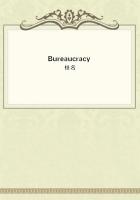'Scarcely that,' said Racksole, and he took Jules by the sleeve. The millionaire knew for a certainty that Nella occupied No. 111, for he had examined the room her, and himself seen that her trunks and her maid and herself had arrived there in safety. 'Now open the door,' whispered Racksole, when they reached No.111.
'I must knock.'
'That is just what you mustn't do. Open it. No doubt you have your pass-key.'
Confronted by the revolver, Jules readily obeyed, yet with a deprecatory gesture, as though he would not be responsible for this outrage against the decorum of hotel life. Racksole entered. The room was brilliantly lighted.
'A visitor, who insists on seeing you, sir,' said Jules, and fled.
Mr Reginald Dimmock, still in evening dress, and smoking a cigarette, rose hurriedly from a table.
'Hello, my dear Mr Racksole, this is an unexpected - ah - pleasure.'
'Where is my daughter? This is her room.'
'Did I catch what you said, Mr Racksole?'
'I venture to remark that this is Miss Racksole's room.'
'My good sir,' answered Dimmock, 'you must be mad to dream of such a thing.
Only my respect for your daughter prevents me from expelling you forcibly, for such an extraordinary suggestion.'
A small spot half-way down the bridge of the millionaire's nose turned suddenly white.
'With your permission,' he said in a low calm voice, 'I will examine the dressing-room and the bath-room.'
'Just listen to me a moment,' Dimmock urged, in a milder tone.
'I'll listen to you afterwards, my young friend,' said Racksole, and he proceeded to search the bath-room, and the dressing-room, without any result whatever. 'Lest my attitude might be open to misconstruction, Mr Dimmock, I may as well tell you that I have the most perfect confidence in my daughter, who is as well able to take care of herself as any woman I ever met, but since you entered it there have been one or two rather mysterious occurrences in this hotel. That is all.' Feeling a draught of air on his shoulder, Racksole turned to the window. 'For instance,' he added, 'I perceive that this window is broken, badly broken, and from the outside.
Now, how could that have occurred?'
'If you will kindly hear reason, Mr Racksole,' said Dimmock in his best diplomatic manner, 'I will endeavour to explain things to you.
I regarded your first question to me when you entered my room as being offensively put, but I now see that you had some justification.' He smiled politely. 'I was passing along this corridor about eleven o'clock, when I found Miss Racksole in a difficulty with the hotel servants. Miss Racksole was retiring to rest in this room when a large stone, which must have been thrown from the Embankment, broke the window, as you see. Apart from the discomfort of the broken window, she did not care to remain in the room. She argued that where one stone had come another might follow. She therefore insisted on her room being changed. The servants said that there was no other room available with a dressing-room and bath-room attached, and your daughter made a point of these matters. I at once offered to exchange apartments with her. She did me the honour to accept my offer. Our respective belongings were moved - and that is all. Miss Racksole is at this moment, I trust, asleep in No. 124.'
Theodore Racksole looked at the young man for a few seconds in silence.
There was a faint knock at the door.
'Come in,' said Racksole loudly.
Someone pushed open the door, but remained standing on the mat.
It was Nella's maid, in a dressing-gown.
'Miss Racksole's compliments, and a thousand excuses, but a book of hers was left on the mantelshelf in this room. She cannot sleep, and wishes to read.'
'Mr Dimmock, I tender my apologies - my formal apologies,' said Racksole, when the girl had gone away with the book. 'Good night.'
'Pray don't mention it,' said Dimmock suavely - and bowed him out.















